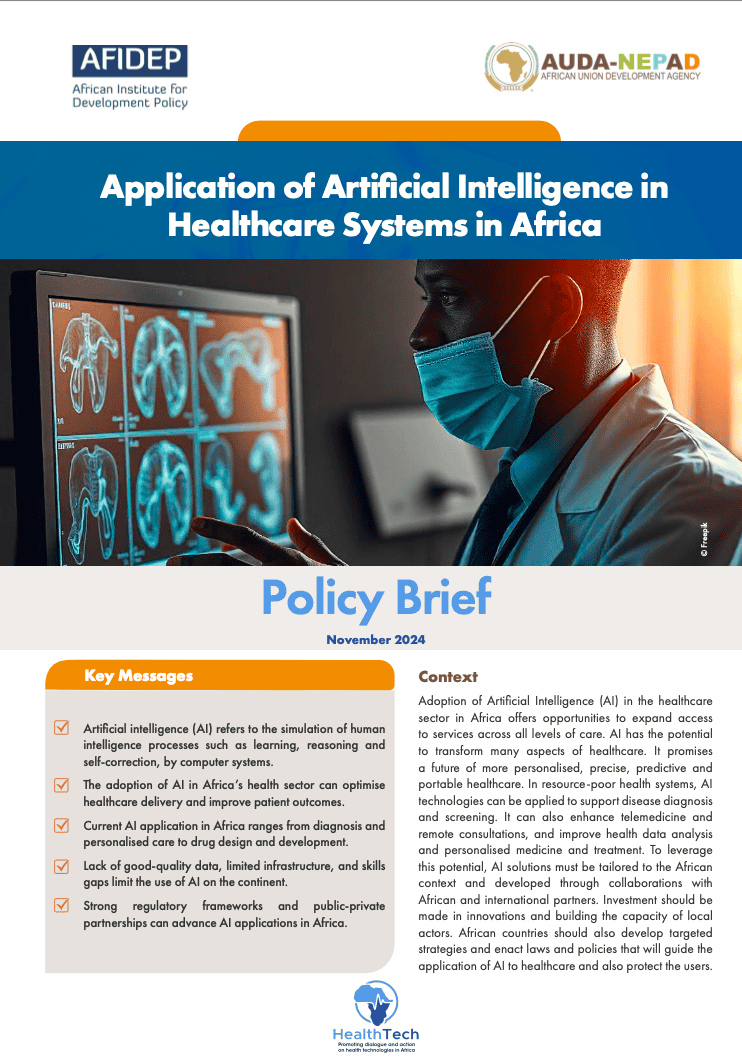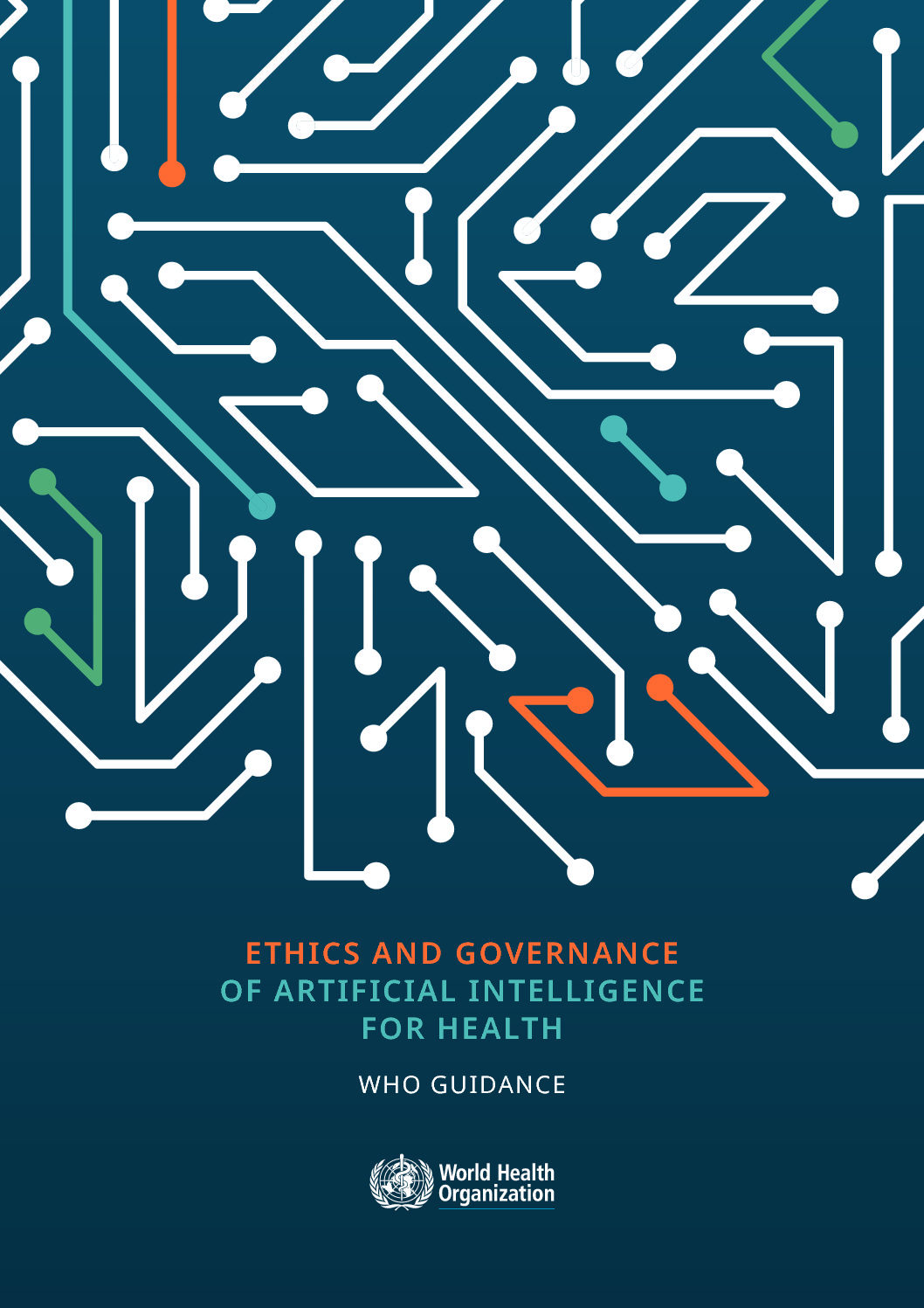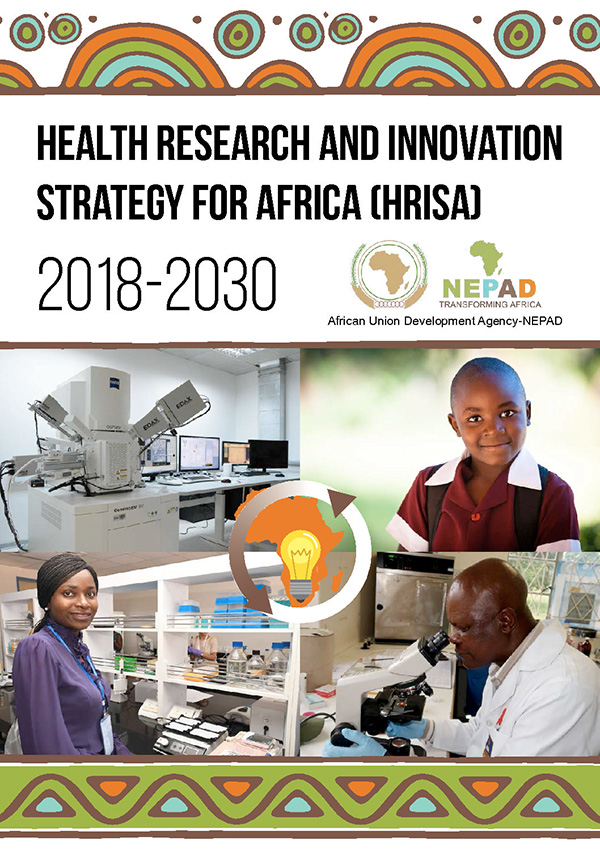Artificial Intelligence (AI) refers to the capability of machines to perform tasks that typically require human intelligence. These tasks include learning from data, reasoning to make decisions, and self-correcting. In Africa, healthcare systems are increasingly integrating AI to streamline processes, enhance decision-making, and improve patient experiences. This growing adoption offers a transformative opportunity to extend healthcare services and address the continent's complex health challenges.
Current AI Applications in Africa
AI is being used across Africa for various healthcare improvements:
- Disease diagnosis and prediction: AI tools analyse medical images from X-rays, CT scans, and MRIs to detect diseases such as tuberculosis, cancer, and malaria.
- Personalised medicine: AI algorithms tailor treatment plans based on genetic data and individual medical records.
- Drug discovery and development: AI accelerates drug discovery and identifies potential drug candidates.
- Telemedicine and remote care: AI facilitates virtual consultations and remote monitoring, improving access in underserved areas.
- Analysis of health data: AI processes large datasets to inform health interventions and resource allocation.
- Mental health support: AI support therapy and counselling services.
Examples of AI Application in African Countries
- In Ghana, AI technology is revolutionising cancer care through personalised treatment plans. By analysing genetic data, treatment outcomes, and patient history, AI algorithms assist oncologists in creating tailored treatment regimens.
- South Africa is at the forefront of integrating AI with 3D printing and robotic surgery. The use of 3D printing technology allows for the creation of customised medical devices and prosthetics tailored to individual patient needs.
- In Egypt and Zimbabwe, AI-enabled telemedicine platforms are making healthcare more accessible. These platforms facilitate virtual consultations between patients and healthcare providers through video calls, chatbots, and mobile applications.
- In Kenya and South Africa, AI is applied to analyse vast amounts of health data to uncover trends and predict future health needs. AI systems process electronic health records, public health data, and other health metrics to identify patterns that can inform public health interventions and resource allocation.
Policy Recommendations to Support AI Adoption
To harness AI's potential, African policymakers should:
- Establish guidelines for AI use, data privacy, and security
- Enhance data collection, sharing, and analysis standards
- Collaborate with public and private sectors for AI development
- Offer incentives and funding for AI adoption
- Ensure responsible and ethical AI use in healthcare
- Evaluate AI's effectiveness in improving health outcomes and system performance
Embracing AI in Africa's healthcare systems promises significant advancements in health delivery and outcomes, addressing critical challenges and fostering a more resilient and innovative healthcare landscape.


